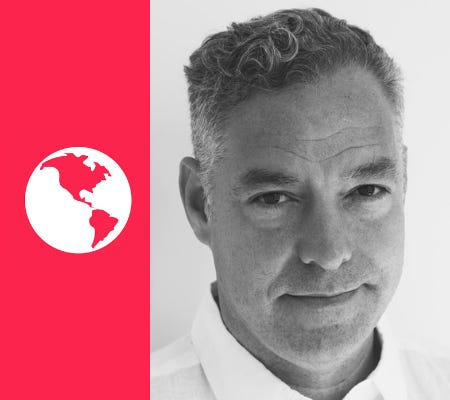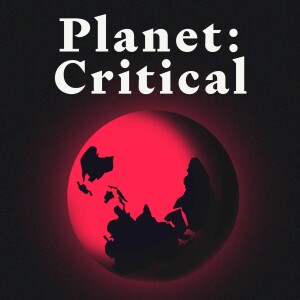
“The media”.
This is the 21st century’s term for journalism—netizens have clocked how many online publications are nothing more than content-churners. However, more care should be taken to separate what we understand as “journalism” and “media”. Rather than protect the privilege of a free press, we’ve begun using the laziest blanket word which puts journalism in the firing line alongside institutions like Facebook. The result is terrifying, but blame doesn’t lie solely with readers.
This week’s guest shines a light on how journalism needs to evolve to protect both itself and its purpose—especially during this critical period in history.
Planet: Critical is a resource for a world in crisis, supported by people like you. Join the community by becoming a subscriber today.
Pulitzer-prize winning investigative journalist, Ian Urbina, spent 17 years at the New York Times before setting up his own non-profit newsroom in 2020, The Ocean Outlaw Project. Ian and his team investigate “the final frontier”, finding stories at the intersection of environment and human rights which typically go under the radar.
The Outlaw Ocean Project models itself after ProPublica, and Ian’s explanation as to how these newsrooms can and must work alongside “legacy” newspapers is absolutely fascinating. We discuss the responsibility of journalists during a crisis, and sharing that responsibility with readers. The innovation at the heart of Ian’s work is really thrilling.
Listen to the full interview here, catch it on on Apple or Spotify, or watch on Youtube. You’ll find the bonus episode on Youtube over the weekend, and paid subscribers have access to the interview transcript.
Learn more about The Outlaw Ocean Project.
You can also follow Planet: Critical on Youtube and support the project on Patreon. Read the interview transcript here.
© Rachel Donald
Get full access to Planet: Critical at www.planetcritical.com/subscribe
More Episodes
 2024-10-31
2024-10-31
 2024-10-24
2024-10-24
 2024-10-10
2024-10-10
 2024-10-03
2024-10-03
 2024-09-19
2024-09-19
 2024-09-10
2024-09-10
 2024-09-05
2024-09-05
 2024-08-15
2024-08-15
 2024-08-08
2024-08-08
 2024-08-01
2024-08-01
 2024-07-18
2024-07-18
 2024-07-11
2024-07-11
 2024-07-04
2024-07-04
 2024-06-27
2024-06-27
 2024-06-20
2024-06-20
 2024-06-13
2024-06-13
Create your
podcast in
minutes
- Full-featured podcast site
- Unlimited storage and bandwidth
- Comprehensive podcast stats
- Distribute to Apple Podcasts, Spotify, and more
- Make money with your podcast
It is Free
- Privacy Policy
- Cookie Policy
- Terms of Use
- Consent Preferences
- Copyright © 2015-2024 Podbean.com






